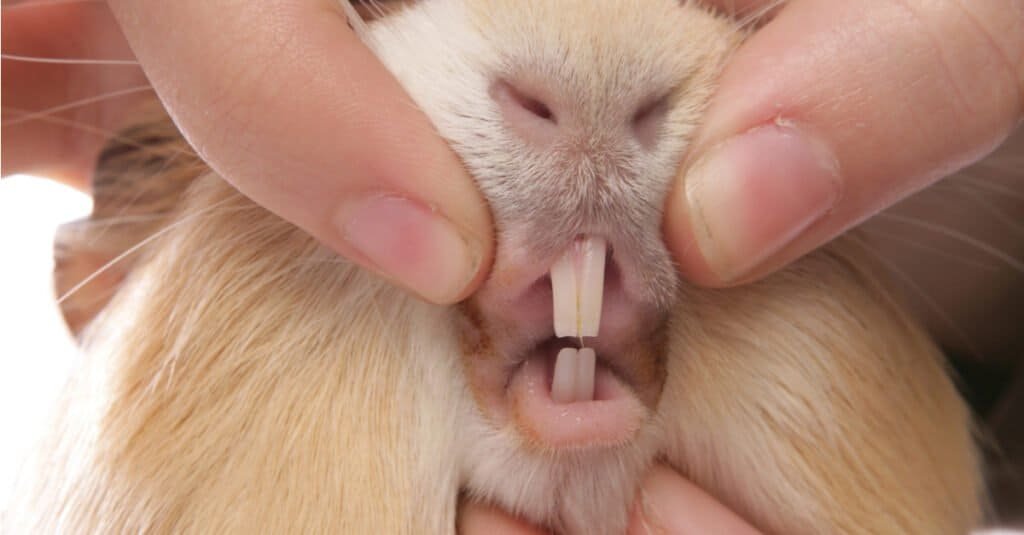Guinea Pig Doctor
Guinea pigs can get sick sometimes too. When that happens, we need to know what to look for, how to treat it and if a guinea pig needs to go to a specialized vet. Let’s dive into a few common illnesses that can affect our adorable little pals:
Respiratory issues (Breathing problems)
Guinea pigs are prone to respiratory problems, especially if they are kept in damp or poorly ventilated environments. If you notice your guinea pig sneezing, coughing, or having difficulty breathing, it could be a sign of a respiratory infection. Keep an eye out for discharge from their nose or eyes as well. In such cases, it’s crucial to consult a specialized vet who can diagnose and provide appropriate treatment like antibiotics or respiratory support.
Keep an eye out for runny noses on your guinea pig friend.
Dental Problems (Teeth problems)
Guinea pigs have unique teeth that continuously grow throughout their lives. Sometimes, their teeth can become overgrown or misaligned, leading to dental issues. Watch out for signs like loss of appetite, excessive drooling, or weight loss. If your guinea pig shows these symptoms or has difficulty chewing, it’s time to seek veterinary help. A specialized vet can examine your guinea pig’s teeth, trim them if necessary, and provide advice or proper dental care.
Teeth are a big deal for guinea pigs. If their teeth don’t look like this, you might want to have a specialized vet examine them.
Digestive problems (Tummy Troubles)
Guinea pigs have sensitive digestive systems, and issues like diarrhea, constipation, or bloating can occur. Changes in their diet, stress, or even an imbalance in gut bacteria can contribute to digestive problems. If your guinea pig’s droppings are unusually soft, or runny, or if they have a decreased appetite, it’s essential to consult a vet. They can provide guidance on dietary adjustments, prescribe medications if needed, and ensure your guinea pig’s tummy gets back to normal.
Skin Conditions
Guinea pigs are prone to skin irritations, mites, and fungal infections. Keep an eye out for signs like hair loss, excessive scratching, redness, scabs, or flaky skin. If you notice any of these symptoms, it’s time for a vet visit. A specialized vet can diagnose the specific skin condition and recommend appropriate treatments, such as topical creams or anti-parasitic medications, to help your guinea pig feel better.
Skinny pigs, like Suzy, will need extra special skincare, so be sure to do your research before getting one of these adorable guinea pigs.
Urinary issues
Just like humans, guinea pigs can experience urinary problems. If you observe your guinea pig straining to urinate, passing blood in their urine, or urinating more or less frequently than usual, it could be a sign of a urinary tract infection or bladder stones. A specialized vet can perform tests and provide the necessary treatment, which may include medication or a change in diet to prevent further issues.
Remember, when it comes to your guinea pig’s health, it’s better to be safe than sorry. If you notice any concerning changes in your guinea pig’s behavior, appetite, or appearance, it’s always a good idea to consult a specialized vet who has experience with small animals like guinea pigs. They can provide the best care and ensure your furry friend gets back to their happy and healthy self.
So, keep a watchful eye on your guinea pig’s well-being, give them lots of love and attention, and be ready to act promptly if you suspect they are unwell. Together, we can keep our guinea pigs in tip-top shape and enjoy many happy and healthy years with our furry pals!





